Have you ever caught your cat gazing at you with soft, relaxed eyes and wondered, “Is my feline friend truly happy here?” For every cat lover, witnessing their beloved companion settle in and feel safe is an emotional experience—equal parts heartwarming and rewarding. Cats might be mysterious creatures, but they’re always communicating their feelings if you know where to look. Every tiny gesture, from a gentle tail flick to a quiet purr, can reveal just how comfortable your cat feels at home. Let’s dive into the subtle, touching, and sometimes hilarious ways cats show us they’re finally at ease. Prepare to discover the secret language of feline comfort, and maybe even catch your own kitty in the act!
Frequent Purring in Your Presence

Purring is often considered the universal sign of a content cat, but it’s not always just about happiness—it can also signal comfort and trust. When your cat begins to purr more frequently around you, it’s a clear indication that they feel safe and relaxed. A relaxed, rhythmic purr as they curl up beside you or in your lap is a sure sign that you’re their chosen safe space. Some cats even purr while being petted or just before drifting off to sleep, an adorable testament to their growing comfort. You might notice the purrs become louder and more consistent as your bond deepens. Unlike the purrs of anxiety or pain, comfort purrs are usually accompanied by relaxed body language and half-closed eyes. It’s like your cat’s way of saying, “All is well, and you’re my person.”
Showing Their Belly

If your cat rolls onto their back and exposes their belly, take it as a huge compliment! The belly is a vulnerable spot, and cats rarely show it unless they feel absolutely safe. This gesture is their way of telling you, “I trust you enough to let my guard down.” Some cats might even stretch out and wiggle, looking playful and carefree. However, be cautious—while this is a sign of comfort, not every cat enjoys a belly rub. It’s more about the trust than the invitation to touch. Observing this behavior regularly means your cat feels increasingly secure in your presence. It’s a heart-melting sight that says, “I feel at home.”
Slow Blinking and Soft Eye Contact

Cats don’t stare down those they mistrust. Instead, a cat that feels comfortable will give you slow, deliberate blinks. These slow blinks are the feline version of a warm smile or a gentle hug, signaling affection and relaxation. If your cat catches your eye and then closes their eyes slowly, they’re saying, “I’m happy and safe here.” Try returning the gesture; many cats appreciate a slow blink from their humans and may even blink back, deepening your bond. This soft eye contact is one of the most intimate forms of feline communication, reserved only for those they love. It’s a quiet, magical moment that every cat owner should cherish.
Kneading on Soft Surfaces
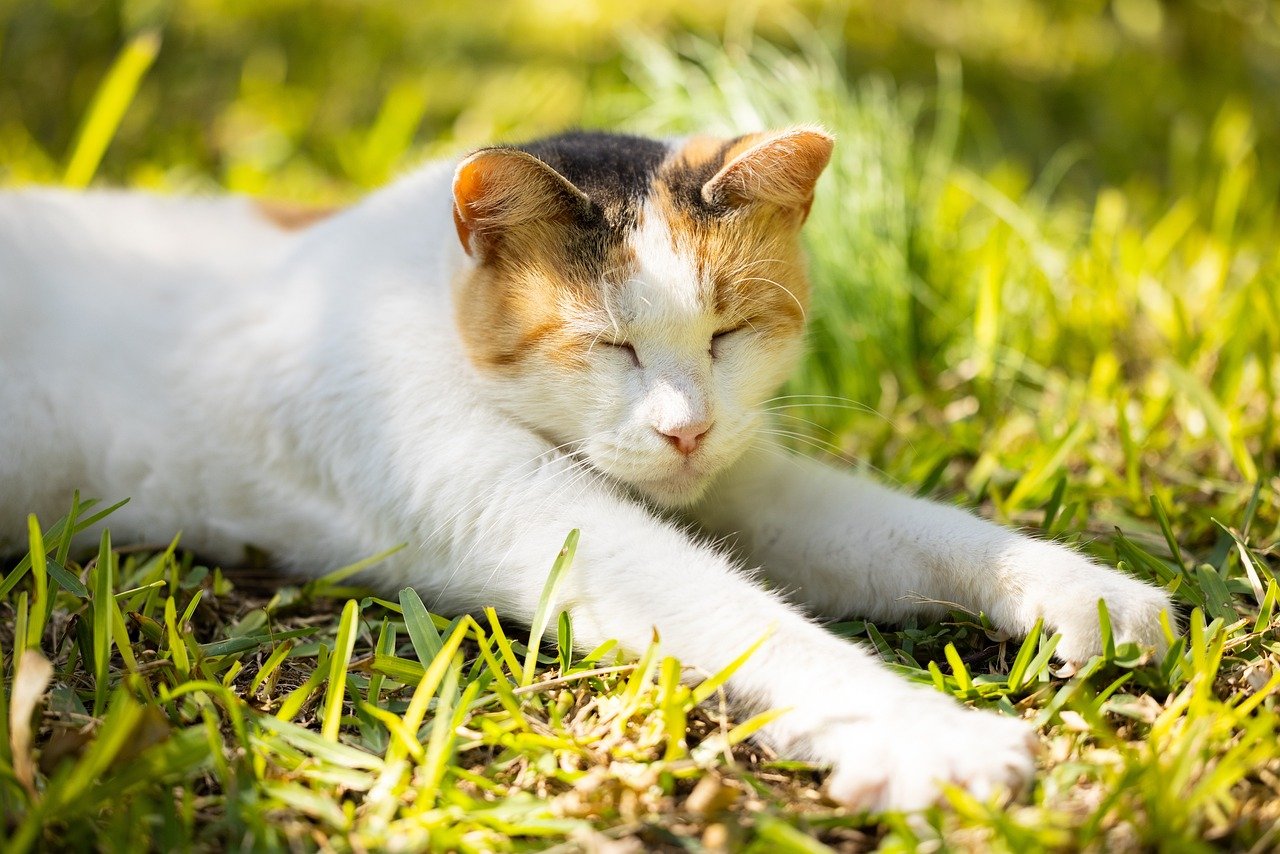
Kneading, often called “making biscuits,” is one of the cutest signs your cat is feeling at ease. This behavior harkens back to kittenhood, when nursing kittens knead their mother’s belly for comfort. If your adult cat kneads blankets, your lap, or even you, they’re channeling those same feelings of safety and contentment. The rhythmic motion, sometimes accompanied by purring, shows your cat associates your home with warmth and security. Not all cats knead, but those who do are often the most comfortable in their environment. Even if their claws come out, it’s all part of the process—your cat is telling you they feel right at home.
Relaxed, Stretched Out Sleeping Positions

When cats first arrive in a new environment, they tend to sleep in tight, protective balls, keeping their bellies covered. As your feline friend grows more comfortable, you’ll notice them stretching out, exposing their tummy, or even sleeping on their back. These sprawling sleeping positions signal that your cat feels completely safe and unthreatened. You may catch them napping in the middle of the room or in new, open spaces rather than hidden corners. The less guarded their sleeping pose, the more they trust their surroundings. Watching your cat sleep so openly is a reassuring sign that your home is now their sanctuary.
Playful and Curious Behavior

A cat that’s relaxed and happy is often a curious explorer. You’ll see them batting at toys, chasing after shadows, or even investigating new sounds and smells with enthusiasm. Play is not just entertainment for cats—it’s a sign they feel confident and secure. If your cat begins initiating playtime with you, bringing you toys or inviting you to join their games, it’s a heartwarming signal of growing trust. Their playful antics, whether it’s pouncing on a feather or darting through a paper bag, show they’re comfortable enough to let their guard down. Playfulness equals happiness in the feline world.
Grooming Themselves in Your Presence

Cats are known for their meticulous grooming habits, but they’re most likely to clean themselves when they feel safe. If your cat starts grooming while sitting near you, it’s a big sign they trust you completely. This behavior is rooted in vulnerability—cats wouldn’t risk distraction unless they felt secure. Sometimes, cats will even groom you, licking your hands or hair, treating you like one of their own. Sharing grooming time is a deep sign of affection and comfort, reserved for those they truly feel bonded to. So, if your cat takes a “spa day” in your presence, consider it an honor.
Following You Around the House

Does it feel like you have a fluffy shadow wherever you go? When your cat starts following you from room to room, it’s a sign they love your company and feel safe around you. This behavior, often called “shadowing,” means your cat wants to be near you—not just for food or attention, but simply because they enjoy your presence. They might quietly watch what you’re doing or settle down nearby as you work or relax. It’s a subtle but powerful sign that you’ve become their chosen companion. Having your cat as a devoted follower is a heartwarming milestone in your relationship.
Gentle Head Butts and Cheek Rubbing
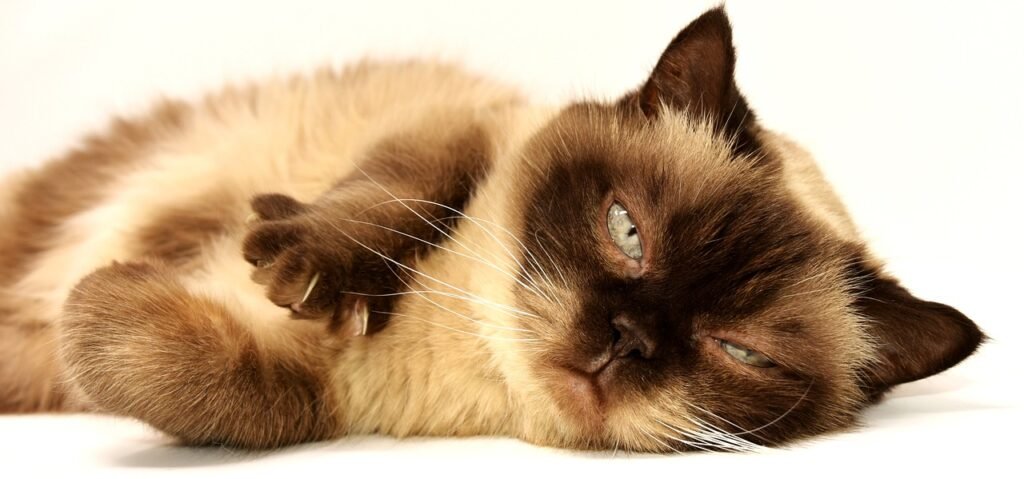
When your cat bumps their head against you or rubs their cheeks on your hand, furniture, or even your face, they’re marking you as part of their territory. This is called “bunting,” and it’s one of the most affectionate gestures a cat can make. The scent glands on their head and cheeks release pheromones, signaling to other cats (and to themselves) that you belong to them. A cat that feels comfortable will bunt often, sometimes even demanding head rubs in return. Each gentle nudge is a loving declaration: “You’re mine, and I feel safe with you.”
Vocalizing in a Calm, Friendly Manner
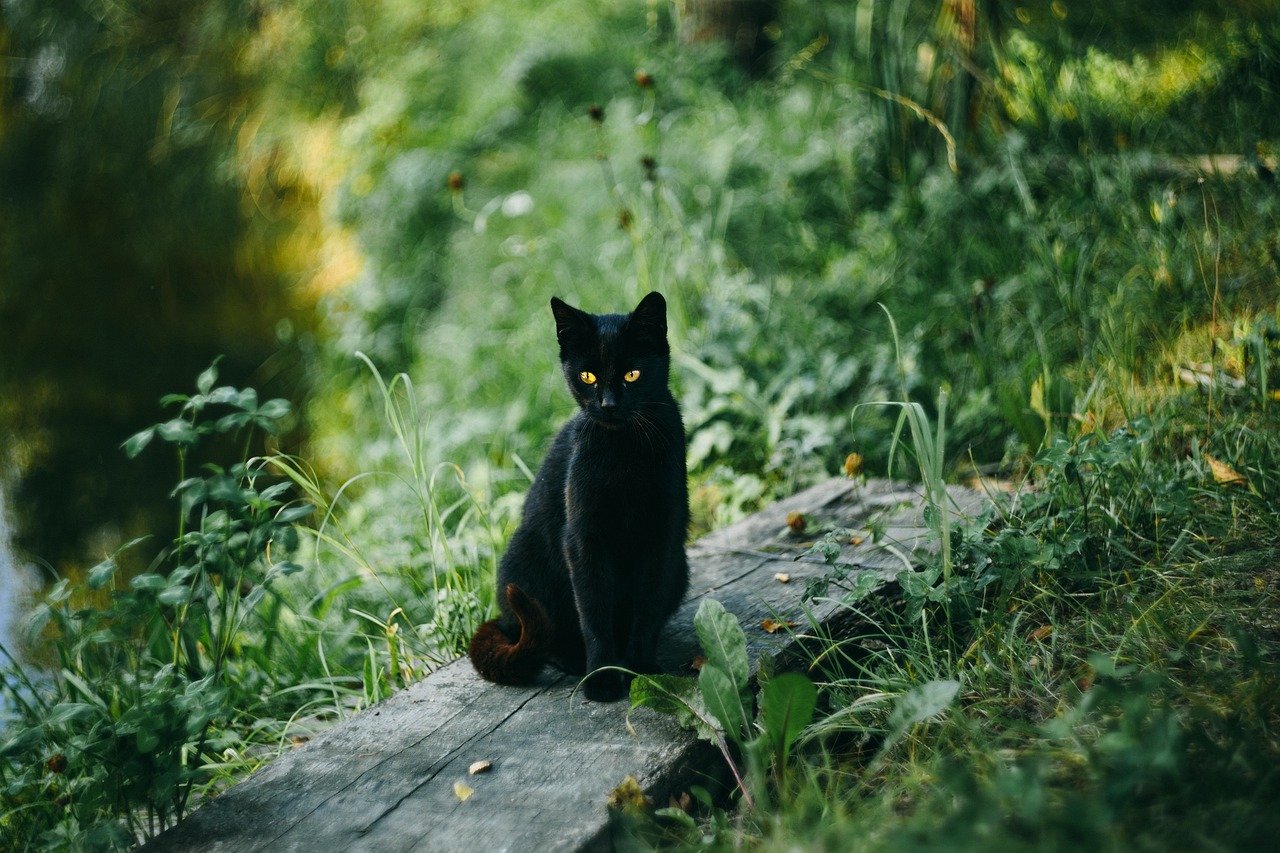
Cats communicate with their voices in all sorts of ways, and the tone matters. If your cat greets you with gentle meows, chirps, or trills, it’s a sign of comfort and friendliness. These soft, conversational sounds are reserved for their loved ones and indicate that your cat feels at home. Some cats become “chattier” as they grow more comfortable, engaging you in meow-filled conversations about their day. They might even develop unique sounds just for you, creating a special language between the two of you. Listening to these happy vocalizations is like hearing your cat say, “I’m glad you’re here.”
Seeking Out Your Lap or Cuddling
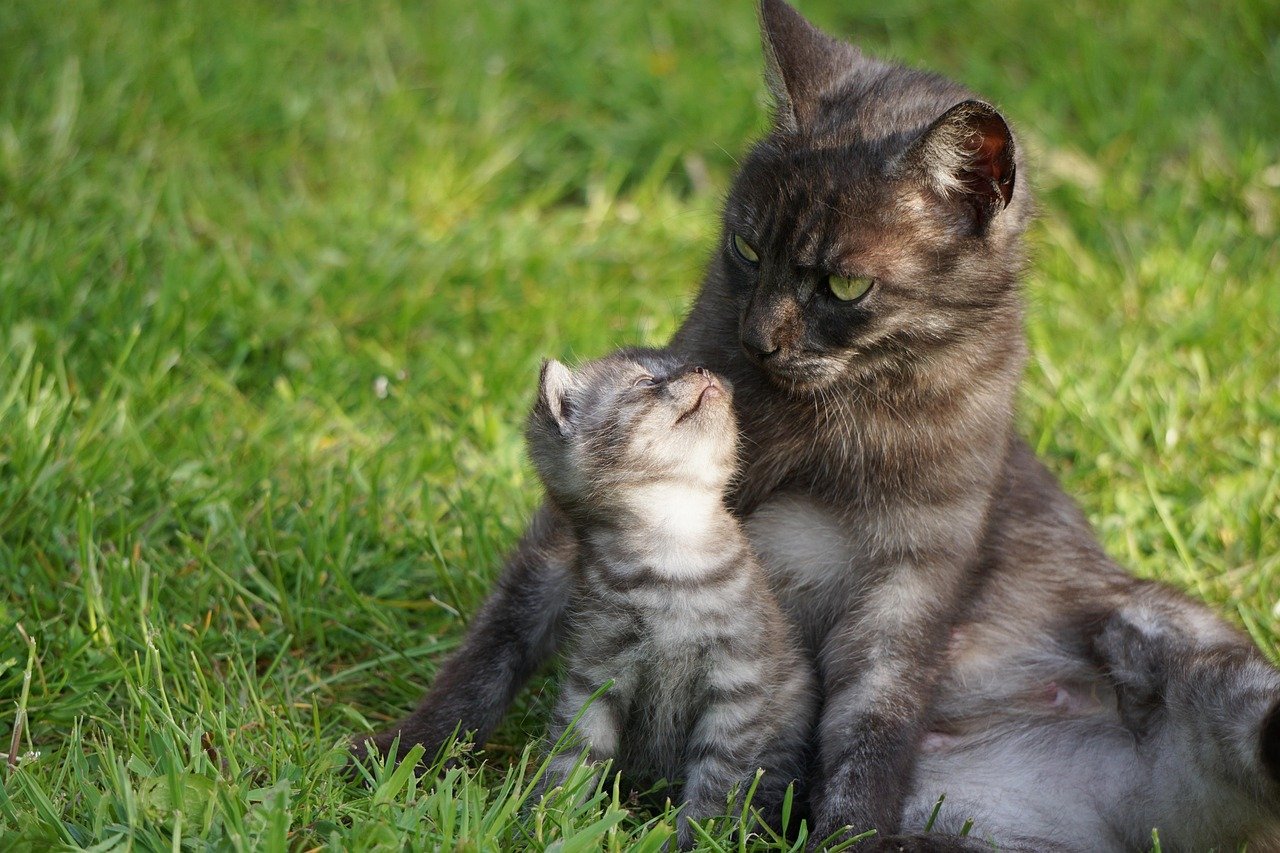
Few things melt the heart faster than a cat choosing your lap as their favorite spot. When your cat climbs onto you for a cuddle or nap, it’s a clear declaration of trust and affection. This behavior doesn’t happen overnight; it’s a sign that your cat feels truly safe and secure. Some cats are natural lap-seekers, while others take time to warm up, but both eventually show their comfort in this way. If your cat curls up on you and falls asleep, it’s a powerful expression of contentment. Treasure these moments—they’re the ultimate sign of feline comfort.
Eating and Using the Litter Box Regularly

A comfortable cat will have a healthy appetite and use the litter box without issue. Stress or discomfort often causes cats to skip meals or have accidents outside the box. If your cat is eating well and keeping up with their litter box habits, it’s a good indicator that they feel safe and at ease. You might even notice your cat eating more confidently, without constantly looking over their shoulder. Regular, relaxed bathroom habits are a subtle but essential sign of well-being. Monitoring these routines helps ensure your cat’s comfort every day.
Chirping and Chattering at Windows

Have you ever heard your cat make funny chirping or chattering sounds while watching birds or squirrels outside? This behavior is a sign that your cat feels safe enough to focus on their natural hunting instincts. Instead of hiding or being anxious, a comfortable cat lets their curiosity take over, engaging with the world beyond the window. The chattering is often accompanied by tail flicks and intense focus, showing your cat is mentally stimulated and happy. It’s a delightful reminder of their wild roots—and a sign they feel truly at home.
Sleeping in New, Open Spaces
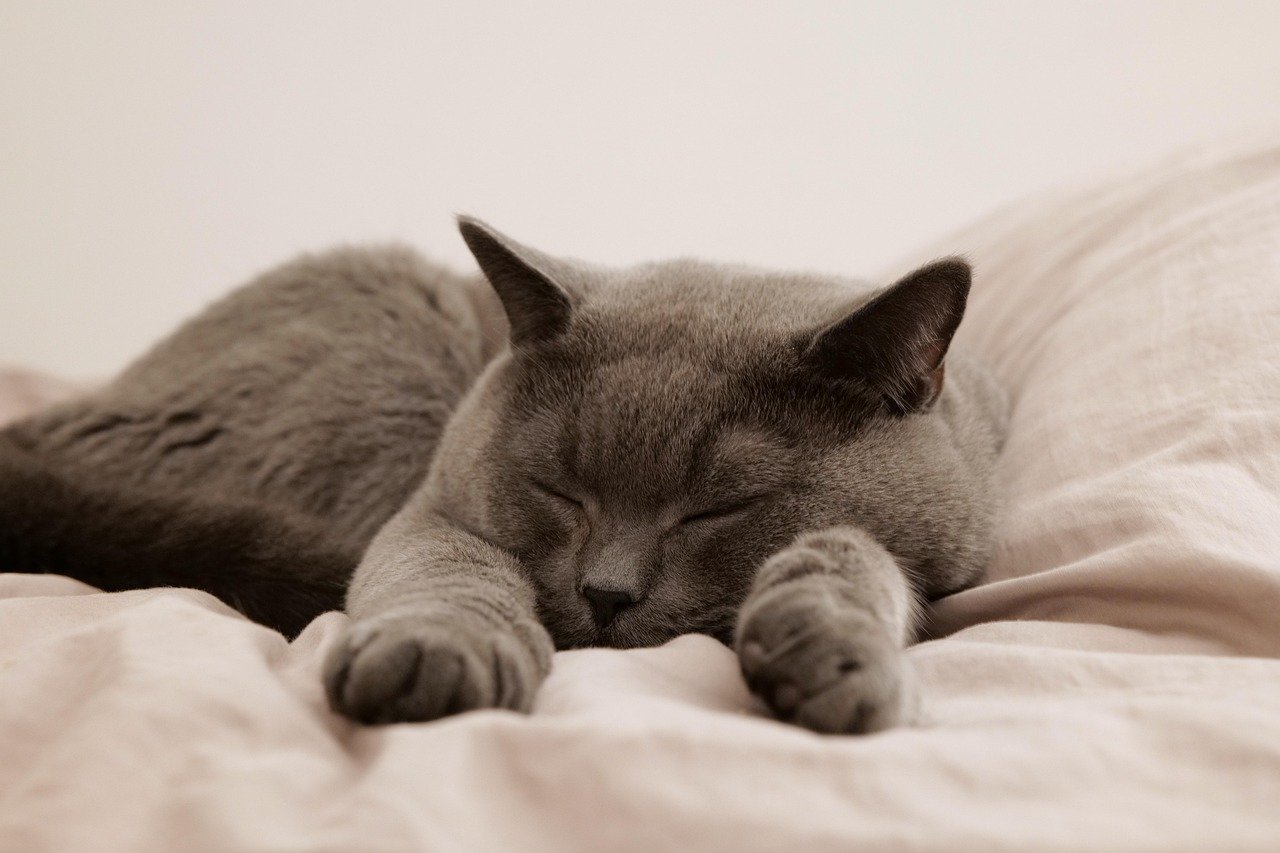
When cats are anxious or unsure, they tend to hide in secluded spots. As they grow more comfortable, they’ll start claiming new, open spaces as their own—like the middle of the bed, a sunny patch on the floor, or even your favorite chair. Sleeping out in the open is a vulnerable act, signaling that your cat feels secure enough to relax anywhere in the house. It’s a big leap from hiding under the couch to sprawling out in the hallway. This newfound confidence is a heartening sign of their comfort and trust.
Bringing You “Gifts”

While it might not always be pleasant, cats sometimes show their affection by bringing you “gifts”—from toys to, occasionally, something they’ve caught outside. This behavior is rooted in natural hunting instincts, but it’s also a sign of trust and comfort. Your cat sees you as part of their family, worthy of being included in their world. Whether it’s a favorite toy dropped at your feet or a less welcome surprise, these gifts mean your cat feels safe enough to share their treasures. It’s their quirky way of saying, “You’re important to me.”
Responding to Their Name or Your Voice

A cat that feels comfortable and bonded with you will often respond when you call their name or speak to them. This could be as simple as a flick of the ears, a meow, or coming over to greet you. Over time, your cat learns that your voice means good things—food, affection, or playtime. If your cat starts to come when called or even follows verbal cues, it’s a strong sign of trust and comfort. This response builds over days and weeks, reflecting their growing attachment to you.
Relaxed Tail Language
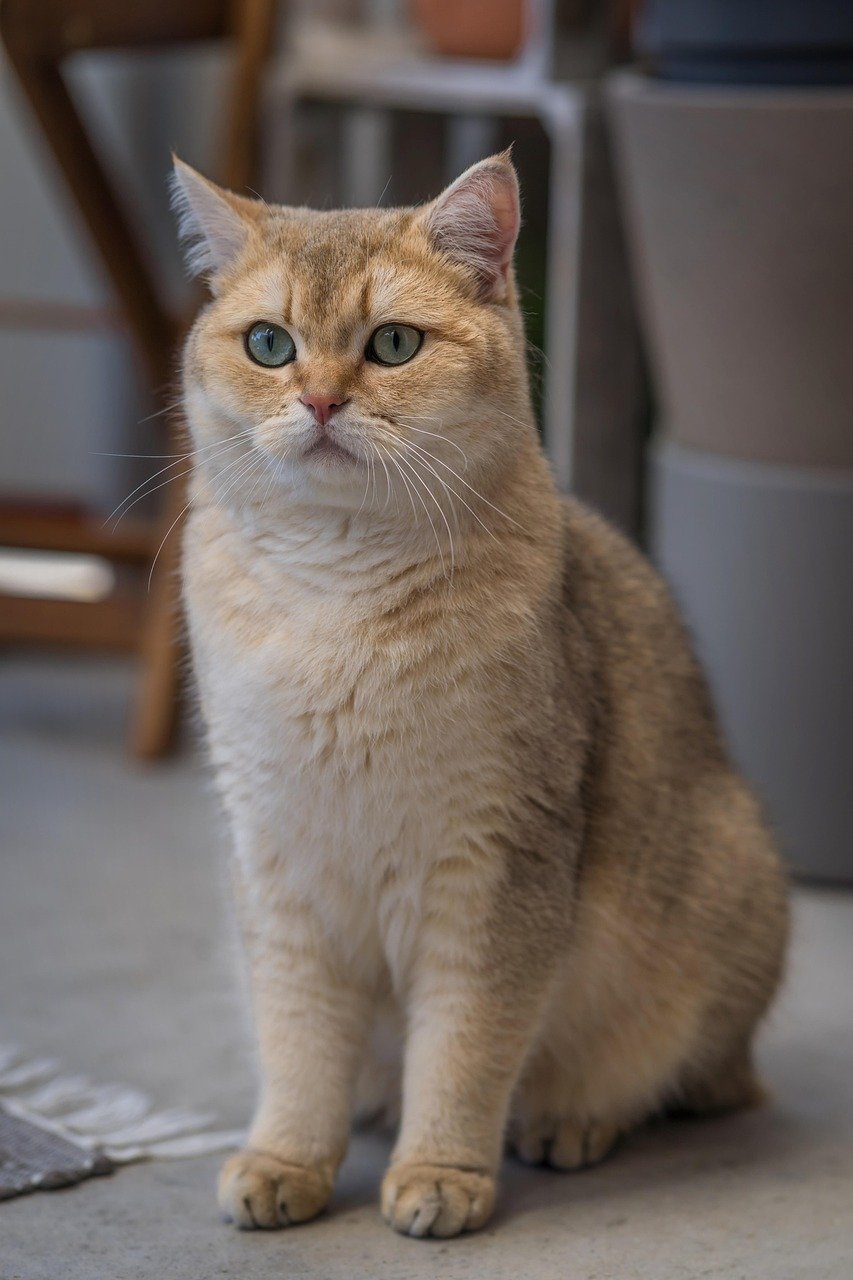
Cats say so much with their tails. A tail held high, softly swaying, or with a gentle curve at the tip is a classic sign of a comfortable cat. If your cat approaches you with their tail up, they’re expressing confidence and happiness. Twitching or puffed-up tails can indicate anxiety, but a relaxed, upright tail means all is well. Watch for those gentle tail flicks when you walk into the room—your cat is greeting you with feline joy. Understanding tail language helps you read your cat’s comfort level at a glance.
Rubbing Their Body Against You or Furniture
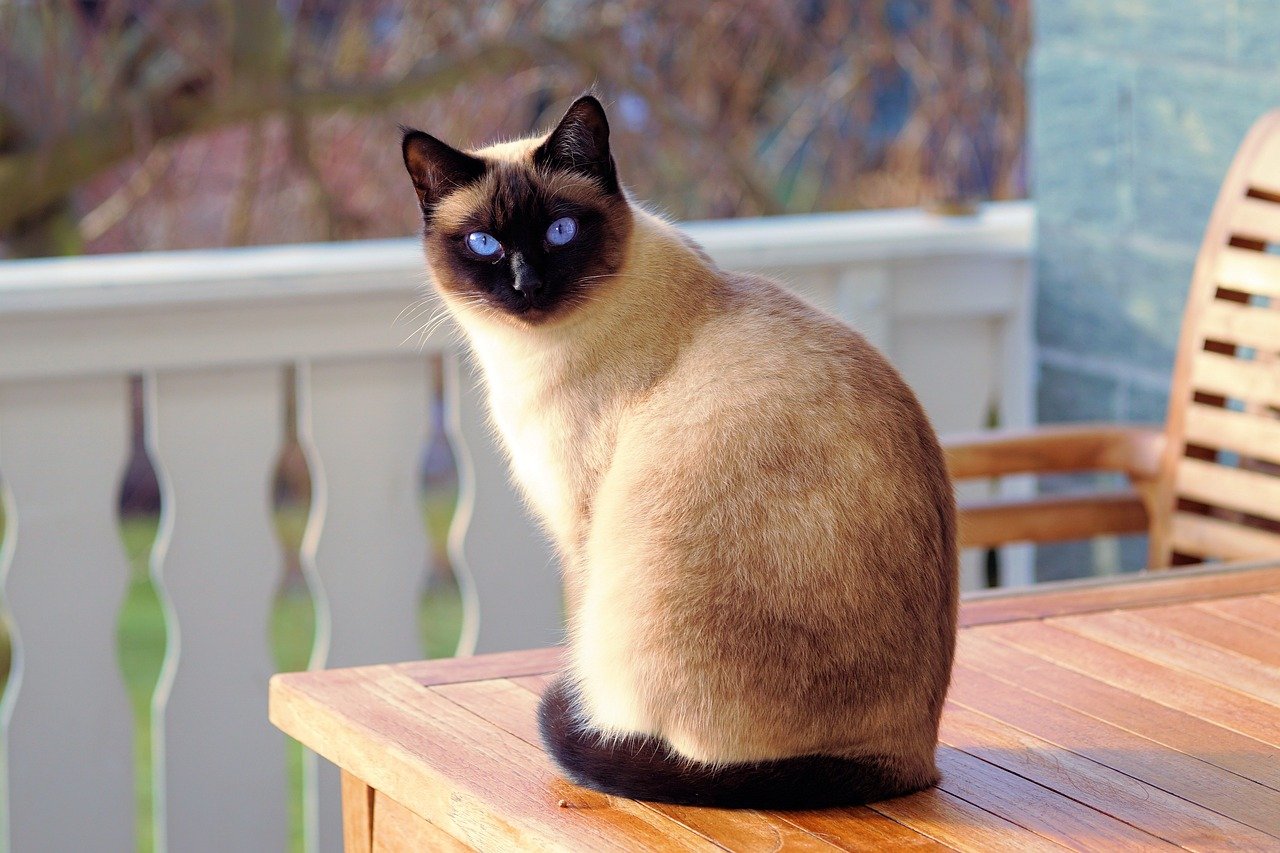
When your cat weaves around your legs or rubs their whole body against you or furniture, they’re spreading their scent and marking their territory. This behavior is more than just physical contact—it’s a sign your cat feels ownership and comfort in their environment. The more your cat engages in this behavior, the more they’re declaring, “This is my home, and I belong here.” It’s a gentle, reassuring ritual that cements their attachment to you and their surroundings.
Relaxed Ears and Whiskers

A comfortable cat will have ears that are forward or slightly to the side, and whiskers that are relaxed and pointing outward. Tense or flattened ears and whiskers pulled back indicate stress, but a relaxed facial expression shows your cat is at ease. You might notice your cat’s ears twitching lazily in response to sounds rather than darting with fear. Their face looks soft, and their eyes may half-close in contentment. These subtle cues are easy to miss but speak volumes about your cat’s comfort level.
Initiating Contact or “Asking” for Attention

When your cat comes to you seeking attention, whether by pawing at your arm, nudging your hand, or sitting in your lap, they’re telling you they feel secure. Cats that feel unsafe tend to keep their distance, but a comfortable cat will initiate interactions. They might meow, head-butt, or simply stare at you until you respond. By “asking” for attention, your cat is expressing a desire to connect and bond. This behavior is one of the clearest signals that your cat feels at home and trusts you completely.
Hi, I’m Bola, a passionate writer and creative strategist with a knack for crafting compelling content that educates, inspires, and connects. Over the years, I’ve honed my skills across various writing fields, including content creation, copywriting, online course development, and video scriptwriting.
When I’m not at my desk, you’ll find me exploring new ideas, reading books, or brainstorming creative ways to solve challenges. I believe that words have the power to transform, and I’m here to help you leverage that power for success.
Thanks for stopping by, Keep coming to this website to checkout new articles form me. You’d always love it!






